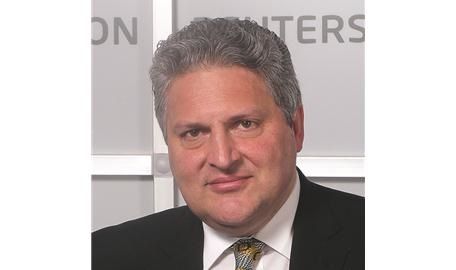Stop Press: Tidjane Thiam fired from Credit Suisse; replaced in the interim by Josef Ackermann.
If you saw that headline, how surprised would you be? Admit it: not at all. In the weird and wonderful world of banking, everything is plausible. “Is there a risk,” I had asked in a commentary in February, “that Tidjane Thiam and John Cryan could lose, are in fact losing or indeed have already lost the confidence of their boards, executives, employees, shareholders and the broader ecosystem as they struggle to convince anyone (really) that their strategies are rock-solid and credible?”
In the case of Thiam, that ship may now have sailed. He committed a major blunder on March 23 in misleading the market by clearly inferring trader skulduggery in ramping up illiquid credit positions that he claimed – wrongly and knowingly in the views of senior CS insiders – neither he, his CFO nor senior management knew anything about until January.
It fell to chairman Urs Rohner to come clean and admit at a conference a week later that “there were no blind spots. It’s not the case that positions suddenly surfaced that were not previously there. The positions we have, we know”.
How shocking for a chairman to have to publicly correct his CEO. Mind you, given that Rohner went out of his way to hand-pick Thiam last year, a hire that always had the look of a risky gambit given his lack of banking experience, I’m not sure the saga will be particularly kind to the chairman either.
The jury is out as to whether Thiam just got side-tracked, went dangerously off-script in media interviews and dug himself a massive hole from which he couldn’t escape; or whether he was playing (and losing) a hazardous mind-game in planting the notion of something amiss as a pretext (not that he needed one) to justify shuttering European securitised product trading, distressed credit trading and long-term illiquid funding.
Whatever the case, he’s surely run out of road. Beyond anything else, Credit Suisse’s share price has halved since he took over last July, having hit an ignominious low of SFr12.23 on February 10 (–53%). No-one has much faith in either the first strategy he unveiled in October 2015 or in the second one he unveiled on March 23, dressed up as an acceleration of the first, but which was in any case massively overshadowed by his bizarre assertions.
Chatter has been swirling for months now about Thiam replacing Christine Lagarde as managing director of the IMF. Le Canard Enchaîné reported in January that the French government (which selects the IMF head) had hurriedly endorsed French citizen Thiam once it became clear that Lagarde would have to stand trial for alleged negligence over the convoluted Tapié affair when she was French finance minister.
That switch would be a neat face-saving manoeuvre for Thiam, but is unlikely. Could a way, nonetheless, be opened for someone to come in and rescue Credit Suisse? Media chatter suggested the bank had approached headhunters in January to source a new CEO. Whether that was because Tidjane was being talked up as a future IMF head or because his tenure was going from bad to worse is unclear.
There was talk that the bank might seek to bring back a former executive. Over the years, there’s been a steady stream of luminaries running CS (Hans-Ulrich Doerig, Brady Dougan, Ossie Gruebel, John Mack, Lukas Muelemann, Allen Wheat and others) but I’m not seeing it.
That said, I am somehow drawn to Joe Ackermann as a short-term fix, as fanciful as that might sound. Ackermann worked at Credit Suisse for close to 20 years before joining and running Deutsche Bank, and he was chairman of CS’s management board for three years from 1993. He’s now hanging his hat in Nicosia as chairman of Bank of Cyprus, in a weird-looking set-up where the bank is effectively run by distressed debt and turnaround king Wilbur Ross and Russian interests (former head of Norilsk Nickel Vladimir Strzhalkovskiy and Renova’s Maksim Goldman both sit on the board). That can’t be comfortable.
Given his statesman-like stature, Ackermann has chairman written all over him rather than CEO but as a Swiss national, could he be the steady hand that calms things down (assuming that dreadful incident at Zurich Insurance where then-chairman Ackermann was dragged personally into the 2013 suicide tragedy of CFO Pierre Wauthier is behind us)? Who knows?
What is clearer is that finding a bank CEO is getting tough as the pool of available talent shrinks. In the past two years, eight G-SIBs (I didn’t include the Chinese in this) have appointed new chiefs: Nobuhide Hayashi at Mizuho Bank (April 1 2014); Carlos Torres at BBVA (May 4 2015); Philippe Brassac at Credit Agricole (May 20 2015); John Cryan at Deutsche Bank (June 7 2015); Bill Winters at Standard Chartered (June 10 2015); Tidjane Thiam at Credit Suisse (July 1 2015); Casper von Kuskull at Nordea (August 11 2015); and Jes Staley at Barclays (December 1 2015). As banks such as HSBC position for succession, competition for talent will become ever more intense.
That offers some great opportunities for CEO pretenders such as Greg Fleming or Andrea Orcel to get their time in the sun. The current script has Fleming replacing the embattled Gerald Hassell as CEO of Bank of New York Mellon, who’s under pressure from Marcato Capital Management and other shareholders to walk; and Orcel replacing similarly embattled Federico Ghizzoni as CEO of UniCredit, under pressure from Leonardo del Vecchio, chairman of Luxottica Group and other shareholders. But scripts can be altered.
As I’m writing this on April 1, I’m tempted to call the whole thing an April Fool. But then again, in an industry where fact can often be stranger than fiction, spotting the joke is nigh-on impossible.
